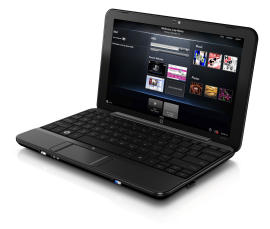From Windows Capable to the Linux laptop


(That is the HP 1000 to the right, from the screen of our own Erica Ogg.)
Up in Seattle, TechFlash is gleefully poring over court filings related to Microsoft requiring a specific graphics chipset in order for OEMs to get what it thought was a coveted designation.
But I think the more important result came about without the use of lawyers. That designation became less coveted.
Windows advocates will argue that the netbook form factor was inevitable. They will point to growing support for the form factor within Microsoft itself. They will call Linux alternatives el-cheapos, even spin all this as a threat to Linux.
What's great is we don't have to argue about it. No politics, not even corporate politics, will determine the outcome. (Oh, goody.)
The market will decide.
In line with that, HP's efforts deserve special attention. When you put a famous designer's name on it, you're targeting consumers, not those geeks at ZDNet. And, to keep prices low, these will be all-Linux models.
(I can't wait for the ad where a model falls on the runway, Chris Berman screams "Down Goes Frazier," but her Linux laptop still works.)
Just as important as HP's efforts to make a true mass market Linux laptop is its effort to make a profit at it, even using the old mobile phone business model of bundling wireless service with the device. This has already worked in Europe.
When you're talking about PCs retailing at $4-600 each, it's easy to see that price being under $200 with a two-year wireless contract. Works for Apple. Can it work for Linux?
Personally I find something touchy and silly in some of HP's efforts in this direction. Women want the same things from their laptops as men, for instance. But the key point is they are serious here, not just about the engineering but the marketing.
Can we build a serious market for the Linux laptop in 2009? Yes we can.